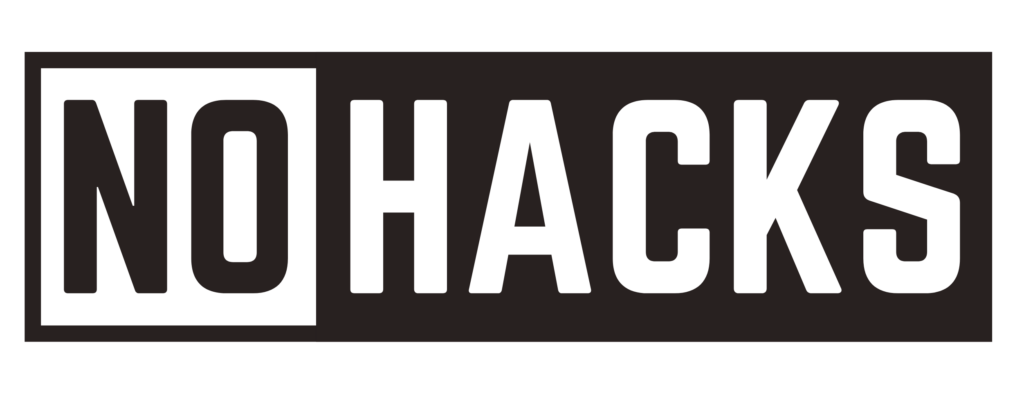In a world brimming with data, what separates noise from insight? For Bhavik Patel, Director of Experimentation and Analytics at Lean Convert and founder of CRAP Talks, the answer lies in purposeful measurement. In this episode of the No Hacks Podcast, Bhav shares why measurement is essential—not just in analytics, but in life itself.
With a career spanning roles at major tech companies like Hoppin, Gusto, and Photobox, Bhav brings unparalleled expertise to the table. From the power of experimentation to the metrics that matter, this episode dives into the strategies that fuel growth, both personally and professionally.
In this episode with Bhavik Patel, you’ll gain insights into:
- The Importance of Meaningful Metrics: Why measuring everything can be counterproductive and how to focus on what drives real impact.
- Product Management vs. Feature Management: Understanding the difference and why solving user problems should be your priority.
- The Role of Experimentation: How to integrate experimentation into your product strategy and connect it to business outcomes.
- Avoiding Vanity Metrics: Examples of costly missteps and how to focus on metrics that truly matter.
- Building Collaborative Communities: Lessons from CRAP Talks and the value of cross-functional learning.
- Applying Analytics to Life: How Bhav used a metric tree to identify patterns, set goals, and improve his personal health.
- Consistency Over Perfection: Why long-term success in work and life depends on small, sustained actions.
Why Measuring Everything is a Mistake
“You can’t improve what you don’t measure, but measuring everything is like measuring nothing,” Bhav explains. Instead, he advocates for focusing on the metrics that truly impact your goals. Whether it’s understanding the success of a product feature or evaluating team performance, knowing what to track—and why—is critical.
Bhav highlights the difference between product management and feature management, emphasizing that the former solves real user problems, while the latter risks becoming a scattergun approach to development. Without meaningful metrics, teams risk losing sight of the value exchange between users and the product.
Experimentation: A Must-Have, Not a Nice-to-Have
For Bhav, experimentation is the cornerstone of effective product management. Yet many organizations still treat it as optional. Drawing on his experiences, he shares how embracing experimentation can help connect product initiatives to measurable outcomes like revenue or customer retention.
Key takeaway: Start small and iterate. Build experiments around core metrics that align with business goals, then expand as you gain insights.
The Real Cost of Vanity Metrics
A striking anecdote from Bhav’s career involved a PR campaign that garnered 30 likes and 5,000 YouTube views—after a $100,000 investment. It’s a cautionary tale of what happens when teams rely on vanity metrics rather than metrics tied to business outcomes.
This, Bhav argues, is where unit economics and metric trees become invaluable. By breaking down revenue-driving factors, teams can trace the impact of their work back to the business’s bottom line.
Lessons from CRAP Talks: Building Bridges, Not Silos
CRAP Talks—standing for Conversion Rate, Analytics, and Product—embodies Bhav’s passion for cross-functional collaboration. What began as a local meetup has grown into a thriving community of optimizers, product managers, and data enthusiasts.
At its core, CRAP Talks aims to break down silos, fostering conversations between teams that might not normally collaborate. Bhav’s proudest moments? Organic, unplanned discussions where participants challenge assumptions and share diverse perspectives.
Measurement Beyond Work: Lessons for Life
The principles Bhav applies to work extend to his personal life. After noticing patterns in his eating habits, Bhav created a metric tree to understand what drove his weight. By focusing on small, actionable goals—like brushing his teeth by 8 PM to curb late-night snacking—he lost 10 kilos before his 40th birthday.
Key lesson: Progress is about consistency, not perfection. Break down your goals, track your progress, and leave room for setbacks.
Final Takeaway: Stay Consistent
As Bhav succinctly puts it, “Stay consistent.” Whether you’re scaling an experimentation program or improving your fitness, the path to success lies in steady, purposeful effort.
Ready to learn more? Tune in to the latest No Hacks Podcast episode with Bhavik Patel to explore the power of measurement, actionable insights, and community-driven growth.

